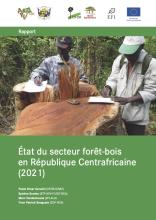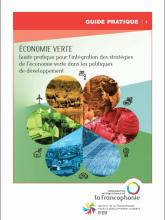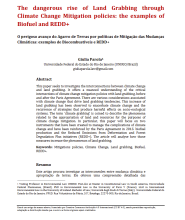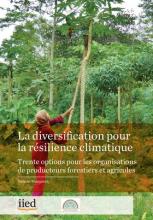Land Library Search
Through our robust search engine, you can search for any item of the over 73,000 highly curated resources in the Land Library.
If you would like to find an overview of what is possible, feel free to peruse the Search Guide.
/ library resources
Showing items 1 through 9 of 219.Este informe examina cómo las políticas de gestión de riesgos ambientales y sociales (ESRM, por sus siglas en inglés) de los principales bancos que financian la extracción de petróleo y gas en la Amazonía no abordan plenamente los impactos adversos de su financiamiento en las personas y la
Le guide pour la conversion en agriculture biologique
L’agriculture biologique est une opportunité économique pour les agriculteurs. Pourtant, cette opportunité peut être très risquée pour les producteurs et générer une chute des rendements brutale.
This study focuses on evaluating the impacts of eucalyptus tree plantations and other tree species on various aspects such as agricultural production, water resources, soil nutrients, natural forests, and biodiversity in the Sidama National Regional State (SNRS) of Ethiopia.
The Global Programme “Responsible Land Policy” (GPRLP) is part of the BMZ Special Initiative "Transformation of Agricultural and Food Systems" which aims to reduce extreme poverty and hunger. The GPRLP is implemented by GIZ and has nine country components.
La République Centrafricaine dispose d’un massif forestier de 28 300 000 ha de forêts dont 5,4 millions ha de forêt dense humide, ce qui constitue un véritable trésor du puits de séquestration
- Remaining intact forests still covered 519 million ha in the Asia-Pacific region in 2020. Of these, 378 million ha are intact contiguous forests.
This paper seeks to investigate the interconnections between climate change and land grabbing. It offers a nuanced understanding of the critical intersections of climate change mitigation policies with land grabbing, before and after the Paris Agreement.
La résilience climatique mondiale est une question de vie ou de mort. Dans les paysages forestiers, 1,3 milliard de petits exploitants agricoles, de communautés et de peuples autochtones doivent organiser leur résilience climatique pour survivre.









